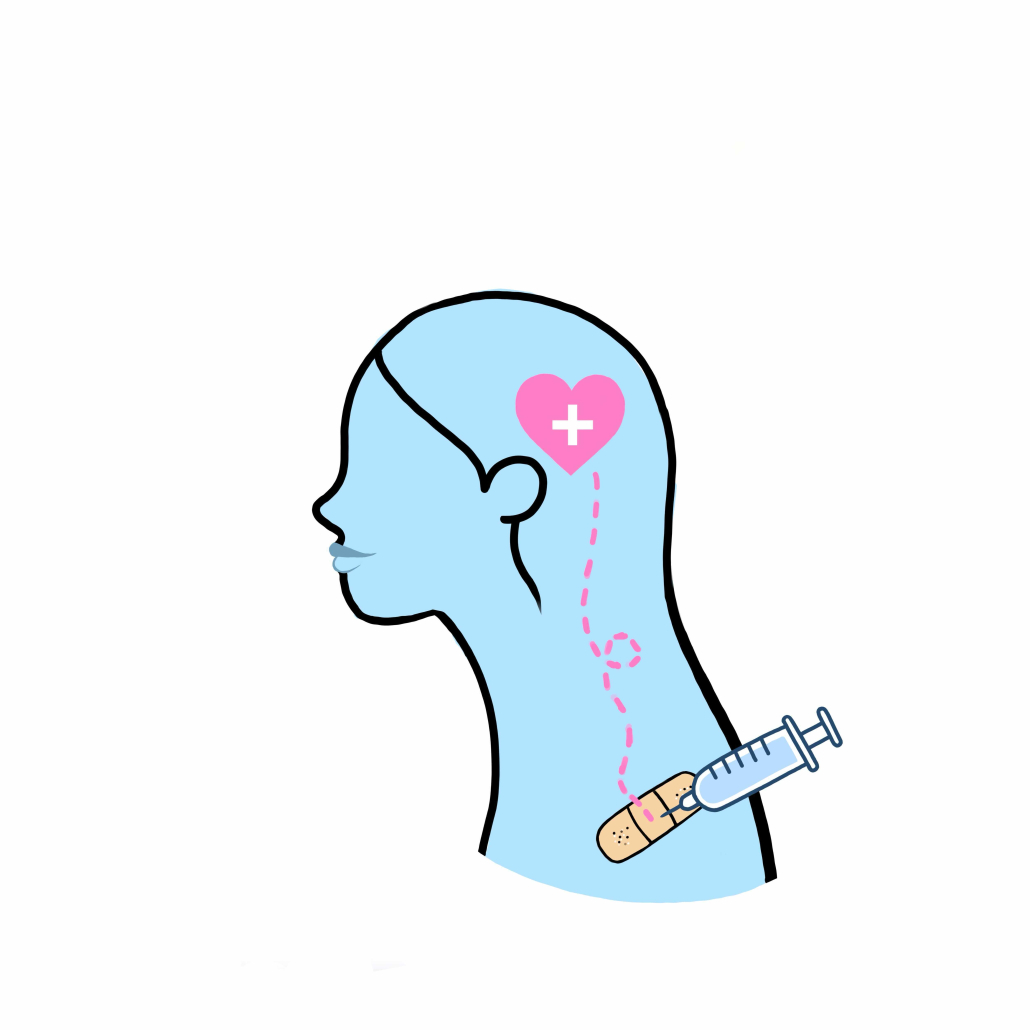Study finds vaccine improves mental health

When the coronavirus pandemic began in March 2020, Dr. Francisco Perez-Arce and other contributors began collecting data to determine the relationship between an individual’s vaccination status and their mental health. The study, which published Sept. 8 in scientific journal PLOS One, found that among 8,003 surveyed adults across the country, vaccinated adults between December 2020 and March 2021 experienced decreased mental distress levels following their first dose.
Perez-Arce, an economist at the USC Dornsife Center for Economic and Social Research, contributed to the project by providing “formal analysis and helping with the [study’s] methodology.” The study sought to discover how people across the United States felt during a pandemic where mental health distress levels rose to a “peak” in April 2020.
“The main goal is to contribute to our understanding of the trajectories of mental health throughout the pandemic,” Perez-Arce said. “There’s a lot of research on this, and there’s a lot of worry about what has happened to [the] mental health of the entire population and different groups in the population.”
The study recognized that mental distress became a major focus in a pandemic that also affected other aspects of people’s lives, such as employment and physical health. To obtain data for the study, the contributors processed results from the Understanding America Study, a survey formed by a panel of households taken by approximately 9,500 respondents.
Arie Kapteyn, executive director of CESR and another contributor to the study, said the participants of the survey were asked questions every two weeks about the coronavirus pandemic since March 2020. Following vaccine availability, the survey asked participants whether or not they received the vaccine.
“It turns out that we are the only ones who have collected continuous data about the effects of the pandemic on American households in the country,” Kapteyn said. “The result is that hundreds and hundreds of research groups around the world are using our data.
Before receiving the results, Perez-Arce said he believed that those who chose to receive a vaccination would experience an improvement in their mental health. However, Perez-Arce said that he remained skeptical of whether receiving a vaccination caused improvement in mental health, as indirect effects caused by factors like knowing that others would be vaccinated could impact one’s well-being.
“The data we’re using for this study is from relatively earlier stages of the vaccination campaign, so I wasn’t eligible at that time to get vaccinated, but I was still feeling better about the whole situation because I knew that other people close to me were getting vaccinated,” he said.
The contributors noted that it was difficult to make sure that they obtained sufficient data and information at the start of the pandemic.
“It was very useful that we started right away in March because now we can see how things look and compare to how they looked right before or right as the pandemic was starting,” Perez-Arce said. “You can see things like what the drop in mental health was from March to April of 2020, which many studies cannot do, because they just start collecting data later on.”
The study’s conclusion found that receiving the first dose of the vaccine “resulted in significant improvements in mental health, beyond improvements already achieved since mental distress peaked in the spring of 2020.” However, the study also noted potential limitations, including the possibility of individuals becoming less depressed after knowing others received the vaccine.
Despite the possible limitations, Perez-Arce recognizes the study used what was available at the time that allowed the team to do the research and gather information. He clarified that the study, while it does not capture the overall effect of vaccinations, is honest about its findings and what they mean and do not mean.
“There’s nothing I can think of that I would do differently given the constraints that we have … so hopefully other studies will look at later effects,” he said.
Neeraj Sood, a professor of health policy at the Sol Price School of Public Policy, and Virat Agrawal, a doctoral candidate studying public policy and management, both cited the CESR’s research for their own paper.
“It is routine practice in research to cite all related papers to the paper you’re working on,” Sood said. “That’s the reason why we cited the CESR paper. The Understanding America Study, which is the CESR study, has been an important study in terms of tracking the pandemic and its consequences.”
Agrawal also said that researchers tend to extend upon the works of other scholars. What made Agrawal’s and Sood’s paper different from the CESR research article, for instance, was that their paper sought to find the spillover effects of the mental health of communities that witnessed others being vaccinated.
“We try to build up on that existing work by finding out, ‘What are the other social benefits, like when my friends, families and people in my neighborhood are vaccinated and are not vaccinated?’” Agrawal said.
Regarding future studies, Perez-Arce would like to see how they would investigate any externalities that may impact people’s mental health. He is also interested in potentially seeing the effect vaccinations for children and adolescents have on parents’ mental health.
“That’ll require a slightly different research strategy, but it would be very interesting to see how mental health effects such as vaccination go beyond defending yourself,” he said.

